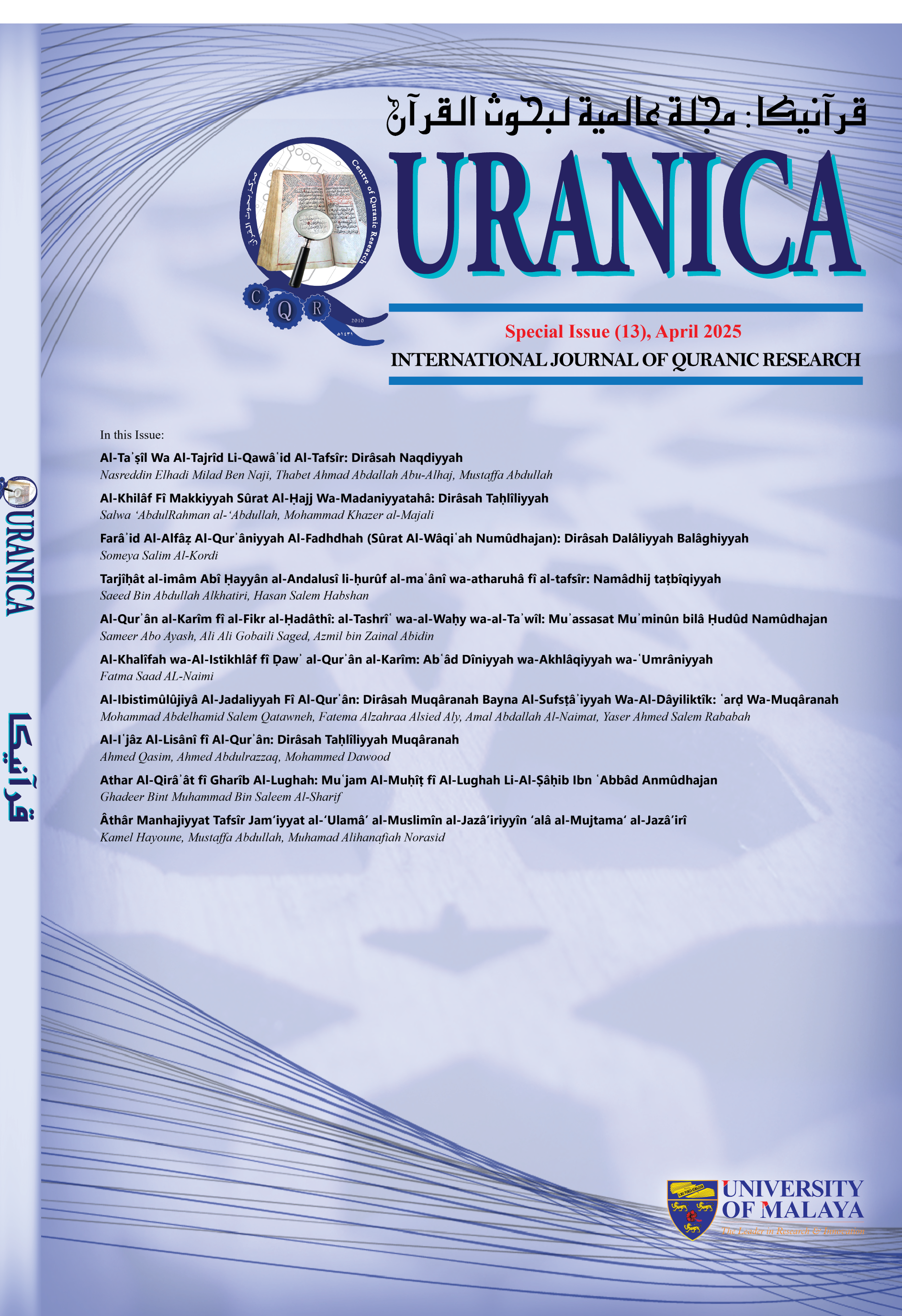Al-Qurʾān al-Karīm fī al-Fikr al-Ḥadāthī: al-Tashrīʿ wa-al-Waḥy wa-al-Taʾwīl: Muʾassasat Muʾminūn bilā Ḥudūd Namūdhajan
DOI:
https://doi.org/10.22452/quranica.vol17no1.5Keywords:
Mominoun Without Borders, Qur'an, Interpretation, Sources of Legislation, Revelation, Modernist Reading.Abstract
This study aims to shed light on the position of modernists regarding the Qur'an in matters of legislation, revelation, and interpretation. The reason for selecting the "Mominoun Without Borders Foundation" as a model for this research is that it leads to modernist discourse in contemporary times. This foundation is considered one of the modern institutions that have contributed to uniting modernists, publishing their works, and shaping their approach to dealing with the Qur'an.
The foundation’s position is reflected in its methodology, which includes calling for reevaluating the sanctity of Islamic legislative sources, foremost among them the Qur'an. It also views revelation as a form of madness experienced by the Prophet ﷺ, favoring a human rather than divine origin of revelation. The study seeks to examine the issue of arbitrary interpretation of Qur'anic texts. Through its writers and researchers, the foundation has theorized and promoted a new type of interpretation among Muslims, both individually and collectively. This interpretation is described as lacking the proper standards of correct hermeneutics, as will be explained in this study. Through research, I reached several conclusions: 1. The foundation relies on absolute reasoning, prioritizing intellect over the texts of the Qur'an. 2. There is intellectual chaos in presenting ideas aimed at fragmenting the Arab and Islamic intellect. 3. The foundation has stripped the Qur'an of its sanctity, reducing its verses to ordinary texts. This has led to a lack of adherence to the Qur'an and its guidance among many of the foundation’s followers. 4. The modernists in "Mominoun Without Borders" have employed Western tools to study the Qur'an, borrowing them from the West and Orientalists without considering the differences between the Islamic and Western environments, or the unsuitability of modernist thought for the Arab and Islamic context. 5. The foundation views the Qur'an as a historical text, revealed for a specific period and not for all times. In my study, I employed the descriptive method to present and review the ideas of the "Mominoun Without Borders Foundation," as well as the analytical and critical method to analyze, critique, and comment on their ideas and texts.
Downloads
Downloads
Published
Issue
Section
License
Disclaimer
QURANICA makes every effort to ensure the accuracy of all its contents. However, opinions, discussions, views and recommendations are expressed in this journal do not necessarily reflect the official policy of QURANICA or views of its editors or publishers. Therefore, QURANICA and its publishers will not be liable for any controversy may be arisen. The journal reserves the right, at its sole discretion, to change its terms and conditions of publications.
Copyright
It is a condition of publication that manuscript submitted to the journal have not been published, accepted for publication, nor simultaneously submitted for publication elsewhere. By submitting a manuscript, the author(s) agrees that copyright for the article is transferred to the publisher, if and when the manuscript is accepted for publication.






